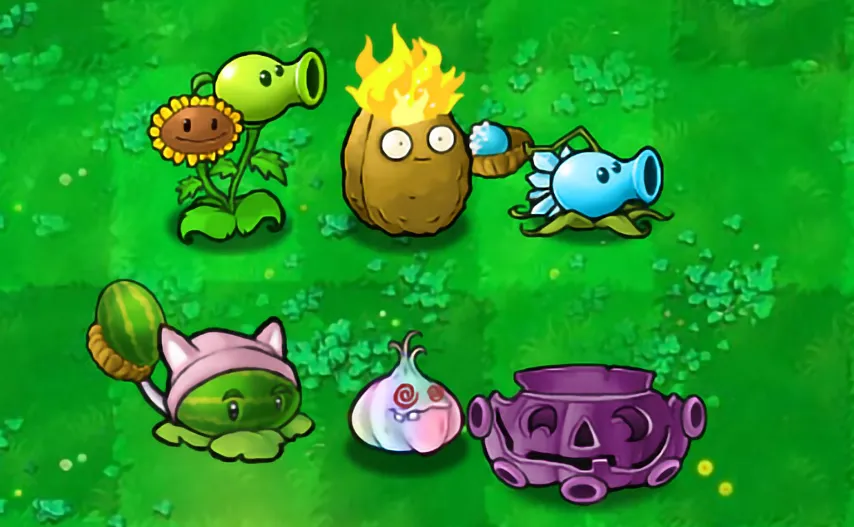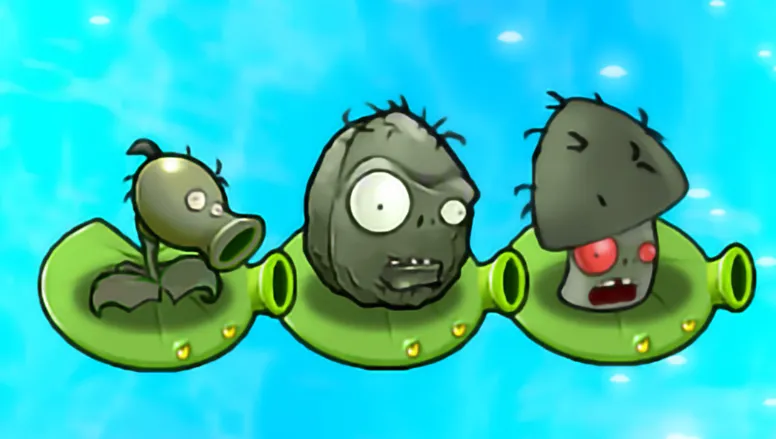In July 2019, Plants vs. Zombies 3, the latest release in one of the most iconic mobile game franchises, was published by Electronic Arts (EA).
For many fans of the original series, the game’s release was underwhelming, as it diverged significantly from the gameplay and charm that had made the franchise a beloved classic. The strategic depth, familiar mechanics, and unique aesthetic of the earlier titles were replaced by simplified mechanics and design choices that failed to resonate with the fanbase. As a result, the initial excitement surrounding the release quickly faded, leaving many to feel that the game had lost the essence of what made the series so special.
However, EA reignited interest almost 5 years later with a renewed promotional push, reminding its community that the game was still in development after years of refinement.
Four Years in the Making, But Missing the Mark
Despite the excitement surrounding the franchise, the four-year development cycle for Plants vs. Zombies 3 raised concerns. A mobile game taking this long to come out especially when more complex games, for more complex supports, like EA’s Battlefield 2042, which only took three years to develop.
According to Stepico Games, Kevuru Games, and ARC Academy, most modern PC or console games typically take three to five years to complete, with AAA games taking anywhere from two to seven years.
The development time for AAA games is often influenced by the game’s art style, with 3D titles in a realistic art style generally taking longer to develop than cartoonish 2D games, making the extended timeline for a mobile game like Plants vs. Zombies 3 particularly out of the ordinary .
When the initial version of Plants vs. Zombies 3 was revealed, fans were disappointed and expressed their criticisms publicly.
PvZ3 has abandoned the approach that made PvZ1 and PvZ2 standout titles. Right now, it’s just a generic mobile game with a PvZ skin, and that’s incredibly unfortunate. We’ve been providing feedback since 2021, but none of our gameplay criticism has been addressed, leaving us with a game that feels too similar to Gardenscapes and lacks the originality that once defined the series.
— a comment reply from u/PvZABFan to PopCap team member u/Nicktrunks’ subreddit regarding the feedback on the soft launch
The game’s identity as a strategic tower defense game seemed lost, leaving fans nostalgic for the classic experience.
The version was met with widespread criticism, with players feeling the game had become just another generic mobile game.
EA’s Attempts to Course Correct
Following the 2019 release, EA made several attempts to correct the course.
In September 2021, EA tried again. The second iteration of Plants vs. Zombies 3 was soft-launched in select regions, including Australia and the Philippines.
The game director at EA Mobile, Matt Townsend, reassured players that the new version would return to the roots of the franchise, specifically the lawn battles that had made the original game so beloved.
“We’ve still got a lot of Neighborville to build and explore; at its core, PvZ 3 is all about taking you back to the Lawn, where it all began, " said Townsend in a press release.
This update reintroduced horizontal gameplay and a more refined aesthetic, including 3D-rendered plants and zombies, bringing back some of the original mechanics.

Despite these efforts, many felt that the game still lacked the strategic depth of its predecessors. The ability to customize plant lineups was removed, and accusations of the game becoming a “pay-to-win” experience arose.
By early 2023, a third iteration of Plants vs. Zombies 3 was in the soft launch phase across various regions. This version, according to the game’s producer and game lead Alex McGregor, aimed to balance fun and nostalgia with new gameplay mechanics.
“We have a lot of new features that we’re excited for players to experience while in soft launch, and the team is looking forward to incorporating player feedback to create a game that is both fun and achieves our target KPIs. Based on that, we could go global sometime this year,” McGregor explained.
Yet, the game continued to trend toward a more casual experience, with strategy giving way to mechanics like limited-use items and dynamic terrain features.

The introduction of a storyline and simulation elements also signaled a shift in the game’s direction as it moved the game away from its traditional, purely strategic tower defense gameplay.
Instead, it leaned more toward casual, narrative-driven play, where players were tasked with rebuilding Neighborville, alongside series mascot Crazy Dave.

While Plants vs. Zombies 3 retained some of its original charm, the shift toward more casual mechanics and the increased focus on in-game purchases continued to alienate certain longtime fans.
The addition of simulation-style features, reminiscent of games like Gardenscapes, further moved the game away from its traditional strategic roots, opening up new monetization opportunities but distancing it from the formula that had initially captivated players.
A Fan-Led Revival: Plants vs. Zombies Hybrid Version
While Plants vs. Zombies 3 struggled to win back its fanbase, another game emerged that reignited the franchise’s spark: Plants vs. Zombies Hybrid Version. This a fan-made version developed by a Bilibili user known as “潜艇伟伟迷,” (SubmarineWeiWeiPVZ on YouTube) took social media by storm and officially collaborated with the original Plants vs. Zombies.

This fan-driven revival became a viral sensation, with gameplay tutorials and strategies spreading across Asian platforms like Bilibili, Weibo, and Xiaohongshu and Western platforms like YouTube.
The Hybrid Version is built on the core mechanics that made the original series so engaging, but adds fresh twists with the introduction of hybrid plants. For example, the Pea Sunflower combines the resource-generating abilities of the classic Sunflower with the offensive capabilities of a Peashooter, making it a versatile asset in any battle.
Similarly, the Pea Cannon fuses the powerful blasts of the Corn Cannon with the rapid-fire of the Peashooter, offering new strategic options.
Hybrid zombie-plants, like the unpredictable Zombie Peashooter and Red-Eye Shroom, further increase the game’s complexity, introducing unexpected elements that keep players on their toes and add a new layer of challenge to every match.
Source: Screenshots of the hybrid plants in Game by Kalinda Xiao
One of the seemingly key aspects of the Hybrid Version’s success was its accessibility. The game offered both casual and hard modes, allowing players of all skill levels to enjoy it. This blend of nostalgia and innovation captured the hearts of longtime fans and newcomers alike, which showed that the franchise still had an enduring appeal.
Balancing Nostalgia and New Ideas
The evolution of the Plants vs. Zombies franchise reflects a broader trend in mobile gaming: balancing the demands for new content with the nostalgia that fans crave. While EA’s official Plants vs. Zombies 3 struggled to find this balance, the Hybrid Version succeeded by staying true to the original’s charm while introducing creative twists.
The future of Plants vs. Zombies remains uncertain, as many fans remain loyal to the classic versions they enjoyed as kids.
As Alex McGregor noted, while the original franchise still “enjoys very healthy install and DAU volumes,” the challenge lies in balancing fan expectations with the need for innovation, complicating the company’s product management decisions.
The challenge of maintaining relevance while respecting the past is not unique to Plants vs. Zombies. Other iconic mobile game franchises, like Angry Birds, have faced similar hurdles. Players often resist change, preferring the familiar experience of the original game over newer iterations.

The fan-made Hybrid Version shows that there is still a deep love for the original gameplay mechanics of Plants vs. Zombies, and its success demonstrates that innovation and nostalgia can coexist.
Whether through official releases like Plants vs. Zombies 3 or fan-made projects like Hybrid Version, the future of the Plants vs. Zombies series will depend on its ability to honor the magic of the original games while pushing new ideas that invite both old and new players to the lawn for one more battle.


